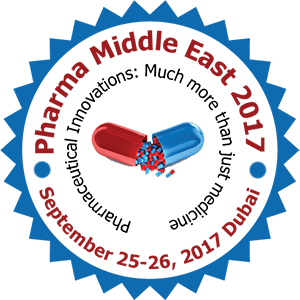
Alamelu Alagappan
Kilpauk medical college, India
Title: Impact of Metformin and its duration of use of severity of ischemic stroke in patients with type 2 Diabetes Mellitus
Biography
Biography: Alamelu Alagappan
Abstract
BACKGROUND: Stroke is one of the most devastating neurological conditions. Diabetes mellitus is a well-established independent risk factor for stroke. Metformin in addition to its anti-hyperglycaemic effects provides additional cardioprotective effects due to its action on lipid metabolism, endothelial function and platelet activity. Better cerebrovascular outcomes are seen with Metformin due to the fact that it reduces the risk of thrombosis through its effect on fibrinolysis by lowering PAI-1 concentration along with Metformin induced increase in insulin sensitivity. Thus Metformin could be developed into a disease modifying drug to treat stroke. But the association between the duration of Metformin therapy and the severity of stroke has not yet been assessed so far. This study aims at assessing the impact of Metformin and its duration of use on the severity of ischemic stroke in patients with type 2 DM.
OBJECTIVES: To measure the severity of stroke using NIHSS and mRS score and to correlate the severity of stroke with the duration of Metformin therapy.
METHODS: This is a comparative cross sectional study comprising 60 stroke patients with type 2 DM, without severe renal impairment (serum creatinine < 1.7 mg/dl). Severity of stroke was assessed using National Institute of Health Stroke Scale(NIHSS) and modified Rankin Scale(mRS). The correlation between the stroke severity and metformin use was expressed as correlation coefficient. T-test was used for testing significance between proportions. p < 0.05 was considered as statistically significant.
RESULTS: The mRS score was statistically significant indicating that metformin therapy was associated with decreased severity of stroke showing improvements in functional outcomes (p = 0.017, CI – 95%). However the NIHSS score was not statistically significant (p = 0.114, CI – 95%) and no significant correlation was found between the duration of metformin use and severity of stroke.
CONCLUSION: Metformin therapy in patients with type 2 diabetes mellitus improves functional outcomes of stroke. However in this study, the correlation between the duration of metformin use and the severity of stroke was statistically not significant. The smaller sample size could have limited the statistical interpretation of data. A proper documentation and recording of treatment history of the patients with a larger population size could increase the statistical significance of the study.

